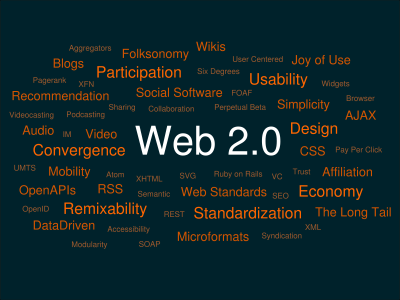An internet traffic boom in Africa and Asia has reduced US dominance over web capacity
Bobbie Johnson in San Francisco
America is losing its position at the centre of the internet, according to a new study.
The survey by communications analysts TeleGeography Research, based in Washington DC, shows a rapid growth in internet capacity around the rest of the world over the past year – particularly in Latin America and Asia.
As a result, America’s traditional role as the internet’s traffic policeman is drifting away as other parts of the world become less reliant on it.
“The US used to be a primary hub for many regions,” said Eric Schoonover, a senior analyst at TeleGeography. “A lot of data still comes through the US, and a lot of content there is served out to other countries … but its importance is declining, though it has by no means gone away.”
The survey – which looks at data taken from internet backbone providers around the world – examined the size and capacity of the physical connections that make up the internet, as well as the traffic that moves across them.
It found that dramatic shifts have led to a decline in America’s involvement in overall internet traffic. In 1999, 91% of data from Asia passed through the United States at some point on its journey. By this year that number had fallen to just 54%.
The change was even more pronounced in Africa. Nine years ago the US was involved in 70% of internet traffic coming from the continent, but that number has decreased to just 6% as more can be directed internally, or through Europe and the Middle East.
“There used to be a phenomenon on the internet called ‘tromboning’,” said Schoonover. “If I were sitting in Singapore or South Africa and I sent an email to a friend three houses down, it was just as likely that the email was going to traverse New York City as somewhere local.
“What we see now is that phenomenon becoming less and less apparent as more local hubs and internet exchanges crop up in Latin America, in Asia and a few in Africa.”
Greater capacity around the world not only offers better access to millions of people, but also helps to make the internet more stable overall.
Earlier this year it became apparent how important alternative routes around the world have become, when major undersea cables linking Europe, Africa and Asia were mistakenly damaged. The string of incidents cut off or reduced internet access for around 100 million people and caused massive disruption to businesses as far apart as India and Egypt.
America’s traditional role as the hub of internet activity is largely a result of the network’s beginnings in the 1960s as the Arpanet, a chain of interlinked computers funded by the US military.
That system evolved over time into the internet, but it was only really with the creation of the world wide web in 1990 by Sir Tim Berners-Lee that explosive online growth really took hold.
Now more than 1.4 billion people worldwide use the internet, with access expanding and new uses requiring greater bandwidth.
But earlier this year the US lost its position as the biggest country on the internet, as the number of users in China overtook the number of users in the US for the first time.
There are also moves afoot to globalise the way the web works, allowing the creation of website addresses in languages like Chinese, Arabic and Russian, rather than just the Roman alphabet.
Plans by Icann, the organisation which oversees internet addresses, had been opposed by some who argued that it could create a splintering of information and allow some repressive governments to exercise greater levels of control over its citizens. However, the proposals passed and the organisation plans to start liberalising web addresses in 2009.
The growth of internet connectivity in other parts of the world does not mean there has been a slowdown in growth in north America and Europe, however. After several years of slower expansion, TeleGeography said capacity has started speeding up even faster, with growth rates hitting 63% last year.
“The US and Europe, just by the nature of scale, had started to flatten out – but even in the last year those have re-accelerated,” said Schoonover.
“In Asia and Latin America, growth rates are through the roof and Africa is starting from such a low base, they can’t help but to grow very, very quickly.”
Filed under: Technology | Tagged: internet, USA | 1 Comment »





